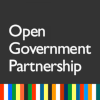Six New Countries Now Eligible to Participate in OGP; Cote d’Ivoire Completes Dramatic Improvement
Cote d’Ivoire and OGP
Shortly after the second OGP Global Summit in London, an official in Cote d’Ivoire called me to ask how his country could join OGP. It was a daunting task to say the least. At the time, Cote d’Ivoire scored a 2 of 12 on the OGP eligibility criteria. However, his Prime Minister had just announced at the Summit that Cote d’Ivoire was making key institutional reforms and intended to become eligible for OGP as soon as possible. A quick review indicated they would need to earn seven more points just to cross that threshold.
I called over a French-speaking colleague to help translate our conversation. Before we started, my colleague paused to confirm the vocabulary she was about to use as at the time, OGP had no participating governmentsOGP participating countries and locals – often referred to as OGP members – are committed to working with civil society to strengthen their adherence to open government values. To join OGP as a pa... where the primary language was French. Although this task of becoming eligible for OGP seemed difficult to my colleague and I, the official sounded very optimistic about the timeline his Prime Minister had laid out. He thanked us for the information and promised to send updates when he could.
Over the past two years, Cote d’Ivoire has steadily introduced key governance reforms, including releasing the executive’s budget proposal and passing an access to information law. This past year the government published an audit report for the first time. Before the OGP Summit in Mexico City, we reviewed Cote d’Ivoire’s eligibility on request and certified that they were eligible to join OGP. Cote d’Ivoire has already submitted a letter of intent and initiated the development of their first action planAction plans are at the core of a government’s participation in OGP. They are the product of a co-creation process in which government and civil society jointly develop commitments to open governmen....
Their example shows that any country can commit to join OGP as long as there is will to improve. The eligibility criteria were designed to be clear and definitive steps that countries can take to begin to open up government. When the Prime Minister spoke at the London Summit, he was able to list the steps his country needed to take as if it were a direct path from civil war to effective governance. Those steps will help Cote d’Ivoire on the path not just of OGP, but to more broadly improve the trust Ivorians have in government.
Additional Updates
Six additional countries also became eligible to join OGP in 2016. Afghanistan had the largest annual increase after they resumed publishing the audit report and passed an access to information law to earn five additional points. Burkina Faso published their audit report for the first time and likewise passed an access to information law. Rwanda published both of the relevant budget documents. Zambia published their executive’s budget proposal. Kazakhstan passed a access to information law. Sri Lanka passed a new constitutional provision for access to information and like Cote d’Ivoire sent a letter of intent to join OGP. We look forward to their first action plan in 2016.
Three countries declined below the threshold for eligibility: Papua New Guinea, Tunisia and Venezuela. Papua New Guinea and Tunisia are OGP participating countries and therefore have a year from January to improve their score. Both countries did not publish an audit report in recent years and need to resume doing so or make other changes to regain points on the eligibility criteria.
32 countries are eligible to participate in OGP but are yet to send a letter of intent to join. The full list is on this page. We’ve also opened an online spreadsheet with a complete dataset, including historical scores, here. If the data for your country has changed in the last year you can contact the Support Unit directly to have those changes verified by emailing info@opengovpartnership.org
